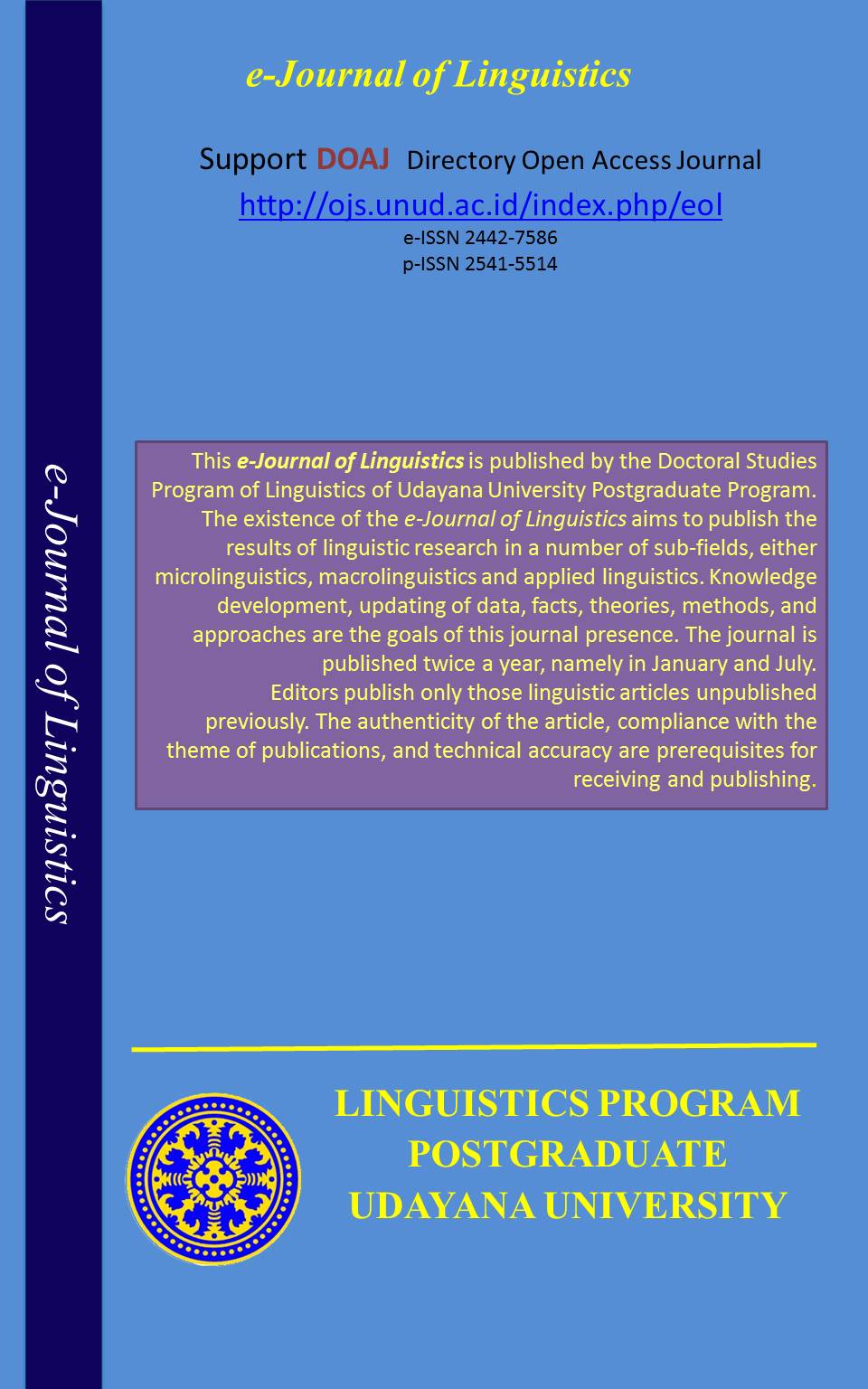The Bakayat SpokenText Tradition The Articulation of Religious Value and Social Discourse of Sasak Community in Lombok
Abstract
This study explored the bakayat spoken-text tradition of the Sasak people in Lombok. The tradition was used as media for preaching on Islamic day, customs and ceremonies, as well as appreciating the folk literature. Malay literary texts that contained religious values were articulated continuously in various social discourses by the community that owned this tradition. The impact of the globalization and the inclusion of various Islamic doctrines in Lombok have threatened the existence of the bakayat tradition and now most Sasak people especially the younger ones are not interested in this tradition. The background explained above has become the main reason why this study was conducted. Moreover, there were still a few studies which had investigated the bakayat tradition in-depth. This present study was focused on the history, structure, function, meaning, and articulation of the religious values and social discourse of the bakayat tradition bySasak people. This research used the descriptive analytical method. The data were analyzed using the interpretive qualitative method. The theories used in this study were the theory narratology proposed by Gerard Genette (1986), the theory of articulation proposed by Stuart Hall (1986), the theory of functions, and the theory of semiotics.
The results of this study showed that the historical development ofthe Sasakbakayat tradition was characterized by the emergence of Islam in Lombok. It significantly contributed to the existence of bakayat. It was followed by the Islamic Malay literature which was used as the reading material in the bakayat tradition and the media for learning Islam. The historical development of the bakayat Sasak was explained in various aspects such as religious, cultural, political, and social aspects. The structure of the bakayat text was a form of the articulation in spoken style which involved the characteristics of the narrative structure, which was seen from the narrative, rhythmic, and storytelling style. The bakayat tradition had two functions, namelythe manifest function and latent function, and there was a shifting function. The manifest function of the Sasak bakayat tradition was that it was used as the Islamic preaching media, while the latent function was that it was used as the educational, social, economic, and customs media. The shifting function of the tradition was that it was used as an entertainment that described the function of social identity, local knowledge, and competition activity. Based on the cultural and social context, the tradition implied that the bakayat tradition had historical, political, aesthetic, and social significances. The translation during the performance of the tradition was accompanied with the meaning interpretation or review conveyed in Sasak language. Each performance had new meaning interpretation of the text; the dominant meaning of the text was about the singleness of God, negotiation, ambiguity, and rejection. The articulation of the Sasak bakayat text was a form of new meaning. The articulation of the religious value and social discourse of the bakayat text was about the story of Prophet Joseph made up of the spoken-text form using the typical Sasak song.Downloads
Keywords

This work is licensed under a Creative Commons Attribution 4.0 International License











